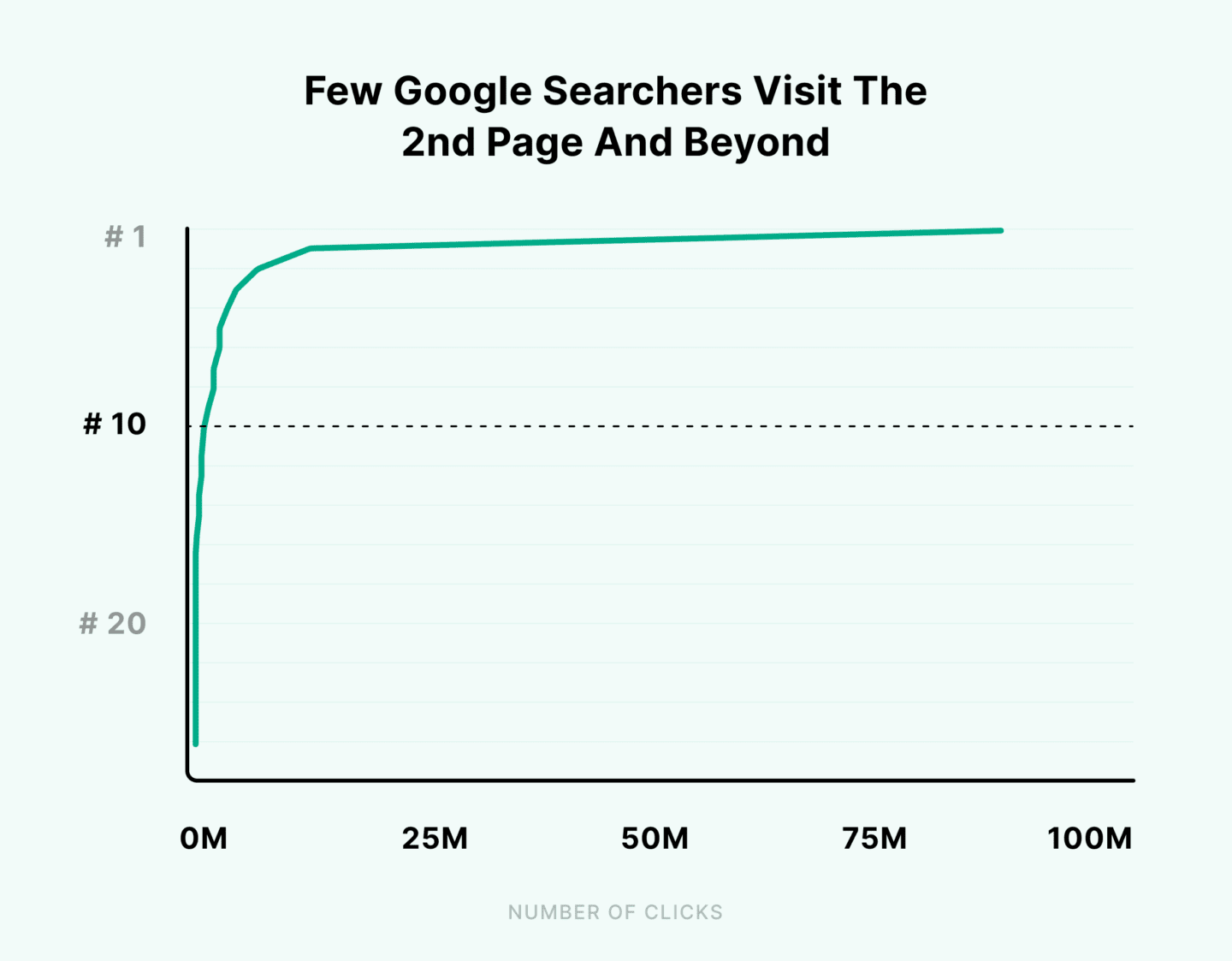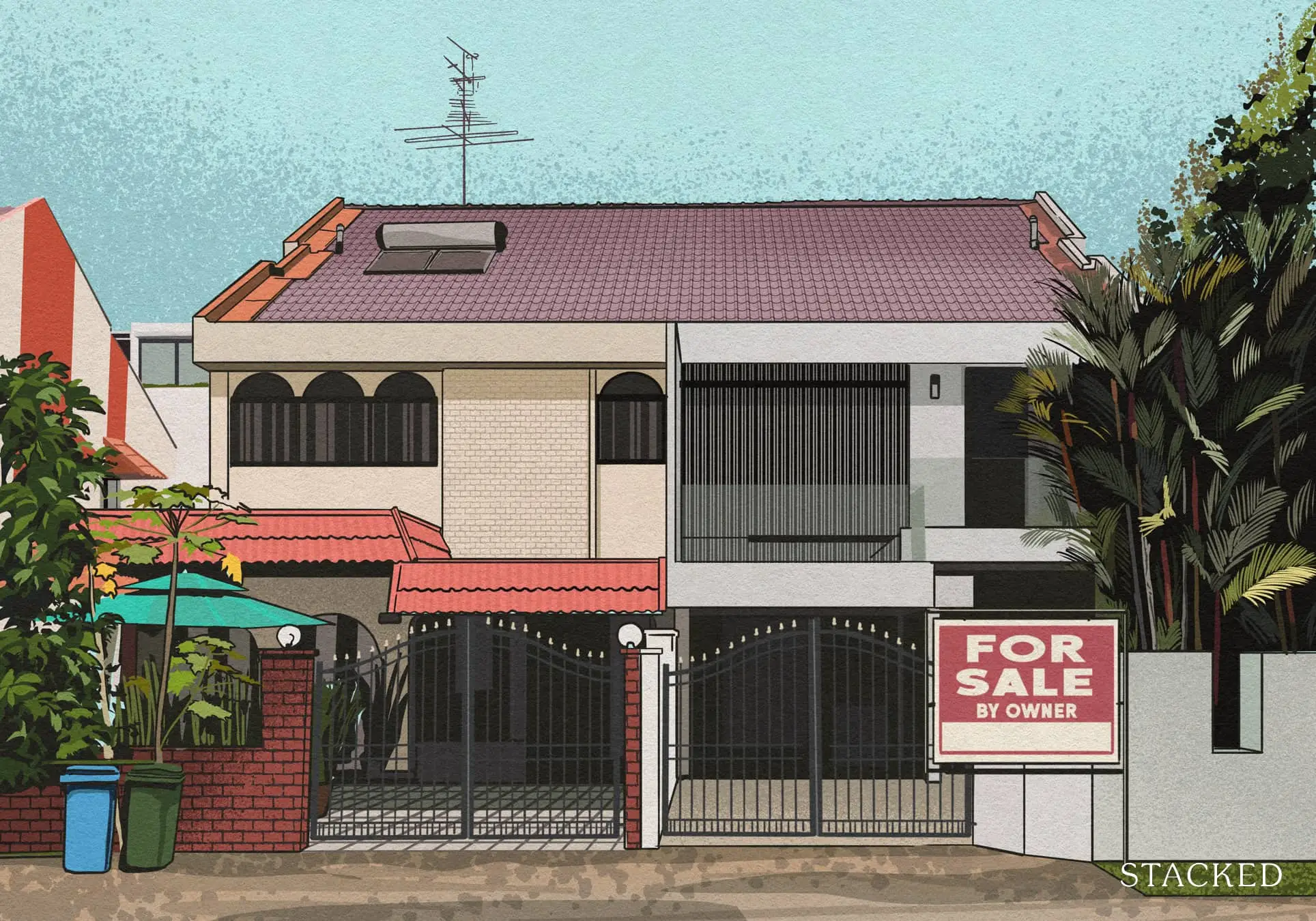We Tried To Eliminate Property Agents In Singapore: Why We Failed & The Challenges New Platforms Face
August 15, 2023

Here we go again: a couple of websites have sprouted up that seek to replace property agents. It’s not the first time we’ve heard the story, and in most cases, the same thing happens: the platform that tries to replace the agents will end up working with the agents instead (which happened to us).

When we launched Stacked in 2017, our initial vision was to bypass the property agent entirely. We invested in a sophisticated backend system to mirror the sales process and even brought in an expensive 3D Matterport camera (we spent hours trying to create free 3D tours of homes), mistakenly thinking it would be a powerful selling point. We also allowed free listings, hoping to attract direct sellers, but it all ultimately didn’t work out. So while it’s possible that such platforms could replace a slice of the agents’ function, realtors are too deeply embedded in the process, for now, to replace completely.
Here’s what we tried before, and why it’ll be really difficult for such no-agent platforms to succeed in Singapore.
So many readers write in because they're unsure what to do next, and don't know who to trust.
If this sounds familiar, we offer structured 1-to-1 consultations where we walk through your finances, goals, and market options objectively.
No obligation. Just clarity.
Learn more here.
Reason #1: Market access
Like it or not, property agents are the ones who spend all their working hours finding buyers and sellers (note that one difference in the property market is that, not only do agents need to find buyers, they need to source their own inventory to sell. Not every buyer wants a new launch).
Even if we were to remove realtors from the picture, we’d just end up replacing them with someone else – such as a large property portal or other such intermediaries, which are able to find buyers and sellers. Because the fact is, the average person doesn’t have the time or inclination to market a property, conduct viewings, negotiate, etc. on top of their daily job(s).
There’s the added issue that such an intermediary – such as a portal that just brings buyers and sellers to the same (digital) location – may not be very helpful in the actual sales process. That’s why even today when property portals dominate as property search tools, they still relegate the transaction process to agents in the end.
One other detail to note here: non-professionals lack the same tools to market their property. The most important tool of all today – property portals – are usually available only to licensed agents.

(This is because some of the major portals were plagued with scammers posting fake listings, prior to this restriction. And also, the bigger matter of diluting their lunch. These portals make way more from the agent than bothering to target the direct seller who may only sell one property in their lifetime).
Bus stop ads, word-of-mouth, and old-school newspaper ads are much more limited ways to find buyers; and even old-school ads are not as cheap as you might think.
This was a major reason why we wanted to create Stacked to begin with, as direct sellers just had so few avenues to be able to market their property. But the simple answer to why we couldn’t succeed was that PropertyGuru dominates property search in Singapore and they’ve had a strong hold on online search which would be hard to dislodge. Trying to beat them at the SEO game would take more than just millions of dollars (99.co has tried for a few years, and even with capital they haven’t really moved the needle much in Singapore).

Ultimately, buyers don’t care if the listing is a direct seller or not. A large majority still rely on Google to find such properties, and if you don’t show up in the top few results (apparently only 0.63 per cent of Google searches click on a link from the second page), it would be pointless to have such a platform just to list properties.
Reason #2: Assurance over million-dollar transactions
Before we started Stacked, we thought the value proposition was really simple and attractive. Sell direct and save tens of thousands in commission – who wouldn’t want to take up such an offer?

We even had a slider showing you how much you would save, and what you could potentially buy with it (in most cases, you could at the very least buy a nice Rolex watch with the savings).
But on the ground, the reality was a totally different story. It was so much more difficult than we thought to convince people to not use an agent to sell their homes. As much as people liked to complain about agents when push comes to shove, they were actually afraid of doing it on their own.
So the simple reality is that when it comes to high-value transactions, there’s a perpetual problem of trust and assurance. Without a professional’s help, there are too many expensive mistakes – either due to simple scams or mix-ups – that can happen to a buyer or seller.
Some examples we’ve seen are:
- Buyers who put down a deposit before securing in-principle approval from a bank, which is something a buyer’s agent would have immediately stopped them from doing. These buyers sometimes cannot secure a loan later, and end up forfeiting the deposit.
- Buyers who end missing clauses such as an “as-is” clause subtly slipped into the Sale & Purchase Agreement, which absolves the seller of any need to do repairs when handing over the property.
- Sellers who end up accepting bad deals, such as a sale on private contract*, or from buyers who haven’t secured loans (getting to keep the buyer’s deposit will be of little consolation if they back out after you’ve already committed to buying a new home).
This is perhaps even more so for deals that are time-sensitive (you have ABSD remission to deal with), or trying to negotiate for a deal on both sides such that you don’t have to rent in between. As a direct seller, would you have the experience of dealing with such a situation?
Ultimately, buying or selling a house is a big transaction, and one that – for most Singaporeans – occurs only once or twice in their lifetime. Coupled with the complexity of understanding the property market, the detailed transaction process, and the fear of scams, most will rather just bite the bullet and get an agent to do it.
*A sale on private contract means that a law firm draws up the terms of a private agreement (e.g., monthly repayments by the buyer, instead of the buyer using a bank). This is sometimes used for properties where bank financing is limited or unavailable, but sometimes also by sellers who don’t understand the full implications. These transactions are often of higher risk to sellers.
Reason #3: If you’re not an agent, then buyers’ agents may not want to deal with you
Here’s one of the bigger issues that only cropped up once we started getting into the nitty-gritty of the real estate transaction – the way private property transactions are structured in Singapore makes it difficult for direct sellers to survive.
More from Stacked
I Own Three Condos In My 40s: Here’s What It’s Like
For most Singaporeans, owning multiple properties is a classic “shake leg and collect money” scenario. This week, however, we talked…

If you’re selling your property on your own, then you’re paying no commissions. This means that, unlike conventional arrangements, you are not going to end up paying the buyers’ agent when it comes to private properties.
(In most situations, the seller pays two per cent commission, which is split evenly between their own agent and the buyers’ agent).
While we don’t have data on how many people use buyer agents in Singapore, it’s easy to imagine that this would be quite a large group – since unlike HDB buyers, they don’t have to pay commissions to the agent.
As such as a direct seller, you will lose out on a significant group of buyers who may not know about your property. There’s little chance that a buyer agent would want to let their buyer know about your property when they would lose out on their commission.
Now this is not 100 per cent true all the time, as there are good buyers’ agents out there who may still want to be transparent; and some buyers may not mind paying their own agent. But it does leave you, as a seller, at a notable disadvantage.
Reason #4: The viewing process is an expensive, time-wasting pain
This also goes for rental. Potential buyers will want to view your property, and these viewings will often be at the worst times.
You may find yourself rushing down from the office to conduct a viewing, or driving to and fro on a weekend to open up the unit. You’ll also find yourself bombarded with nonsense calls, viewers who have zero intent to buy, and potentially even dealing with scammers*.
On a related note, queries about the property can swarm your mailbox in the hundreds. And while you spend hours answering them all, know that probably only a quarter of them may be genuine. The rest tend to be other sellers trying to get a read of the competition, or researchers from different firms trying to gather data.
In practice, we’ve found that few working professionals can afford the time to deal with all this.
*Be careful of putting your address on self-made listings, as the listing can be hijacked by scammers, and your place used to rip-off potential tenants or buyers.
Reason #5: Asymmetrical information and expertise
Obviously, every situation is different, and not every seller absolutely needs to use an agent.
But let’s say you are selling a home in a mega-development where there are many units for sale at the same time. How do you stand out as a direct seller? Do you sell lower than everyone else because you’ve “saved” on the commission, and by doing so, does that ultimately defeat the purpose of doing it on your own?

If all your neighbours are using agents, and you don’t, then you’re probably at an immediate disadvantage. The professional has market data, floor plans, awareness of ongoing trends, and may even have transacted in your exact area weeks ago – whereas all you have are maybe URA transaction records, or browsing asking prices on portals.

Property Advice7 Useful Questions To Ask Your Property Agent Before You Buy Or Sell Your Property
by Ryan J. OngMeanwhile, if you’re buying, you’re likely to miss certain details – such as a seller with a unit just a floor above or below, who is planning to list for less in a matter of weeks. Or even worse, brewing attempts at an en-bloc sale, which aren’t revealed to you by the seller. This doesn’t in itself mean you’ll make a bad choice; but it does increase the risks of that happening.
Agent expertise doesn’t just help with these issues. It also helps in all the important steps, such as whether to take the first reasonable offer, or wait it out. It will, for instance, ensure that you don’t reject other offers, in exchange for a buyer who hasn’t secured a loan, and backs out later.
If there is an industry-wide transformation, we doubt it will involve the complete abolition of realtors. Rather, it will manifest as a change in the nature of a realtor’s work.
A time will come when the bulk of a realtor’s work shifts from just writing listings and processing offers, and instead switches up to a deeper consultancy role. At that point, perhaps we’ll even see hourly rates replace the current commission system.
Reason #6: Singapore is just too small
While our property prices are high (and commissions are high too), the truth is that our market is also just too small for any company to invest significantly into trying to change consumer behaviour.
There’s just too much marketing dollars needed (to connect the seller and buyer), and tech innovation to smoothen and make the rest of the process easy – for a transaction that may only occur once or twice in most people’s lives.
As such, the cost of acquiring a customer for such portals will be just too high, especially when the chances for a repeat deal may only occur at least 3 years down the road (accounting for SSD). When you take into account measures like the ABSD, that further cuts down the chances of most people being able to own more than one property.
For such portals to develop such tools to help consumers bypass the agent, it would just take way too much investment to cater to such a small market.
Given these challenges, it’s clear that a sizeable ROI (Return On Investment) for such portals becomes increasingly elusive. Moreover, the property market, with its inherent complexities and the high value of transactions, demands a level of trust and personal touch that machines and algorithms cannot easily replicate.
The role of property agents goes beyond just connecting buyers and sellers; it’s about providing insights, offering guidance through complex transactions, and managing emotional decision-making processes. While such portals may introduce efficiency in certain aspects, they cannot entirely replace the nuanced understanding and personalised touch a good experienced agent brings to the table. As the adage goes, “In real estate, it’s always more about the people than just the property.”
For more on the Singapore private property market, follow us on Stacked. We’ll also keep you up to date with reviews of both new and resale properties alike.
At Stacked, we like to look beyond the headlines and surface-level numbers, and focus on how things play out in the real world.
If you’d like to discuss how this applies to your own circumstances, you can reach out for a one-to-one consultation here.
And if you simply have a question or want to share a thought, feel free to write to us at stories@stackedhomes.com — we read every message.
Frequently asked questions
Why is it difficult for platforms to replace property agents in Singapore?
What are the main reasons people prefer using property agents in Singapore?
Why do direct property sales often struggle to succeed without agents?
How does the small size of Singapore's property market impact new real estate platforms?
What challenges do new property platforms face in convincing buyers and sellers to go without agents?
Ryan J. Ong
A seasoned content strategist with over 17 years in the real estate and financial journalism sectors, Ryan has built a reputation for transforming complex industry jargon into accessible knowledge. With a track record of writing and editing for leading financial platforms and publications, Ryan's expertise has been recognised across various media outlets. His role as a former content editor for 99.co and a co-host for CNA 938's Open House programme underscores his commitment to providing valuable insights into the property market.Need help with a property decision?
Speak to our team →Read next from Property Market Commentary

Property Market Commentary How I’d Invest $12 Million On Property If I Won The 2026 Toto Hongbao Draw

Property Market Commentary We Review 7 Of The June 2026 BTO Launch Sites – Which Is The Best Option For You?

Property Market Commentary Why Some Old HDB Flats Hold Value Longer Than Others

Property Market Commentary We Analysed HDB Price Growth — Here’s When Lease Decay Actually Hits (By Estate)
Latest Posts

Property Investment Insights This 55-Acre English Estate Owned By A Rolling Stones Legend Is On Sale — For Less Than You Might Expect

Singapore Property News I’m Retired And Own A Freehold Condo — Should I Downgrade To An HDB Flat?

New Launch Condo Reviews What $1.8M Buys You In Phuket Today — Inside A New Beachfront Development






































14 Comments
Appreciate the honest evaluation of the market and your platform. That said, how do buyers deal with the inherent conflict of interest with their agents? (ie. their agent’s commission is on transacted value but a buyer would want to pay as low a price as possible)
Yes, I often feel we are just being manipulated into closing a deal as soon as possible. Also, quality of listings on propertyguru are just terrible.
Agreed that because property transactions are high-value transactions that happen only once or twice in someone’s life, these transactions demand a high level of trust and personal touch that isn’t simply replaceable by machines.
This naturally leads us to a vital question. How do we find good and trustworthy agents if there is a lack of information on agents and every agent’s profile seems to be roughly similar?
Not sure if this is useful but BetterAgents SG is a property agent review platform where people can share their personal experiences with their property agent. Hopefully, with more people sharing their interactions with agents, this can introduce some transparency for other Singaporeans looking to engage property agents.
Used the site before.
One key reason imo was it was not user-friendly and technologically outdated and slow.
Great article and good insights. Thanks for sharing. Most and if not all of the challenges you raised can be solved with technology, create a win-win-win situation for sellers-buyers-agents, and these platforms should work. Airbnb works. and http://www.zillow.com works.
Stacked didn’t manage to eliminate property agents, but you have successfully pivoted to provide the best property analysis and insights (importantly impartial) for readers. Cheers!
Absolutely on point. I agree that realtors are not going to be replaced anytime soon as most people have a real fear even though they complain a lot about agents.